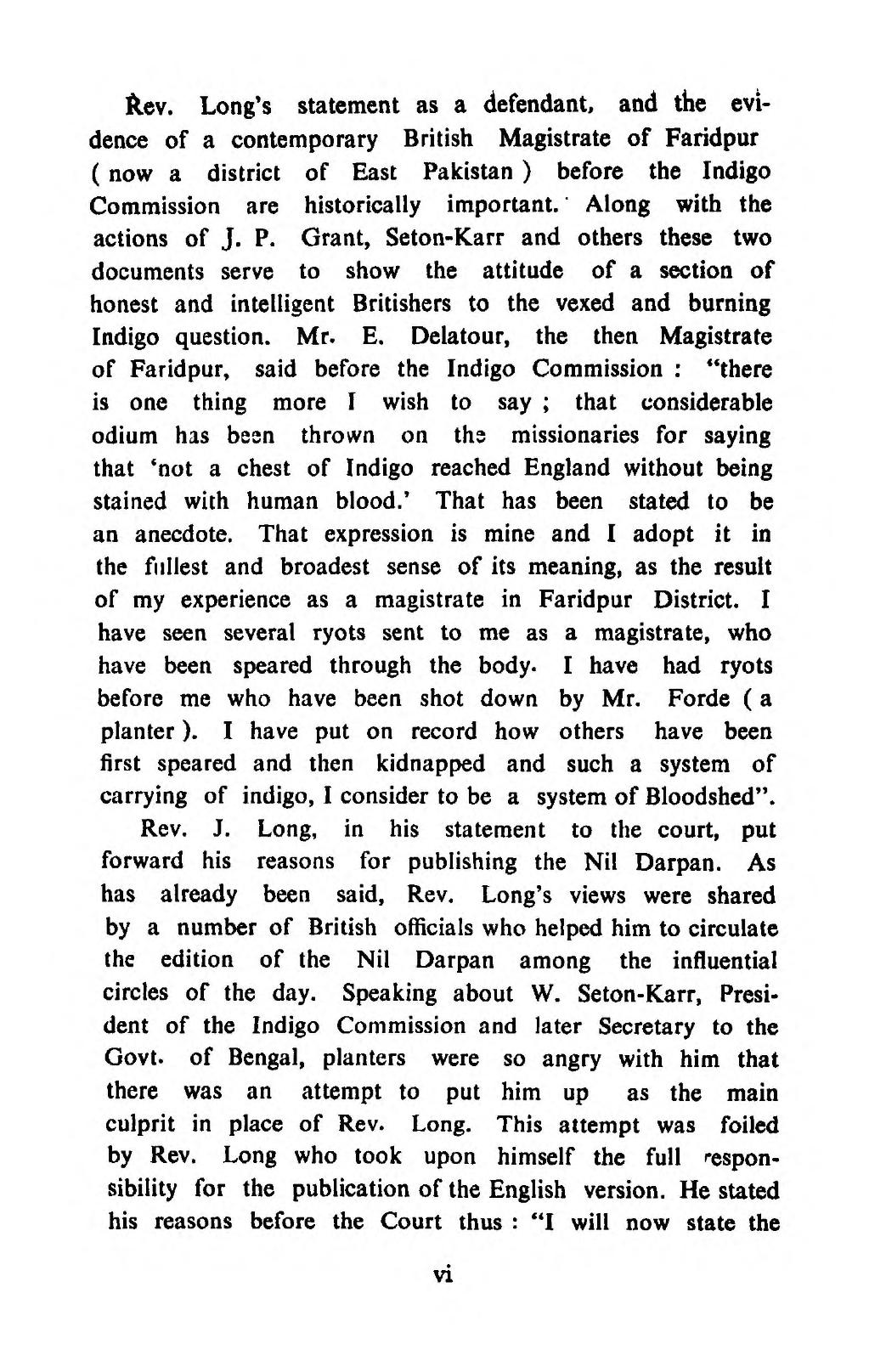Rev. Long's statement as a defendant, and the evidence of a contemporary British Magistrate of Faridpur (now a district of East Pakistan) before the Indigo Commission are historically important. Along with the actions of J. P. Grant, Seton-Karr and others these two documents serve to show the attitude of a section of honest and intelligent Britishers to the vexed and burning Indigo question. Mr. E. Delatour, the then Magistrate of Faridpur, said before the Indigo Commission: "there is one thing more I wish to say; that considerable odium has been thrown on the missionaries for saying that 'not a chest of Indigo reached England without being stained with human blood.' That has been stated to be an anecdote. That expression is mine and I adopt it in the fullest and broadest sense of its meaning, as the result of my experience as a magistrate in Faridpur District. I have seen several ryots sent to me as a magistrate, who have been speared through the body. I have had ryots before me who have been shot down by Mr. Forde (a planter). I have put on record how others have been first speared and then kidnapped and such a system of carrying of indigo, I consider to be a system of Bloodshed".
Rev. J. Long, in his statement to the court, put forward his reasons for publishing the Nil Darpan. As has already been said, Rev. Long's views were shared by a number of British officials who helped him to circulate the edition of the Nil Darpan among the influential circles of the day. Speaking about W. Seton-Karr, President of the Indigo Commission and later Secretary to the Govt. of Bengal, planters were so angry with him that there was an attempt to put him up as the main culprit in place of Rev. Long. This attempt was foiled by Rev. Long who took upon himself the full responsibility for the publication of the English version. He stated his reasons before the Court thus: "I will now state the
vi

